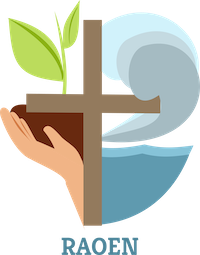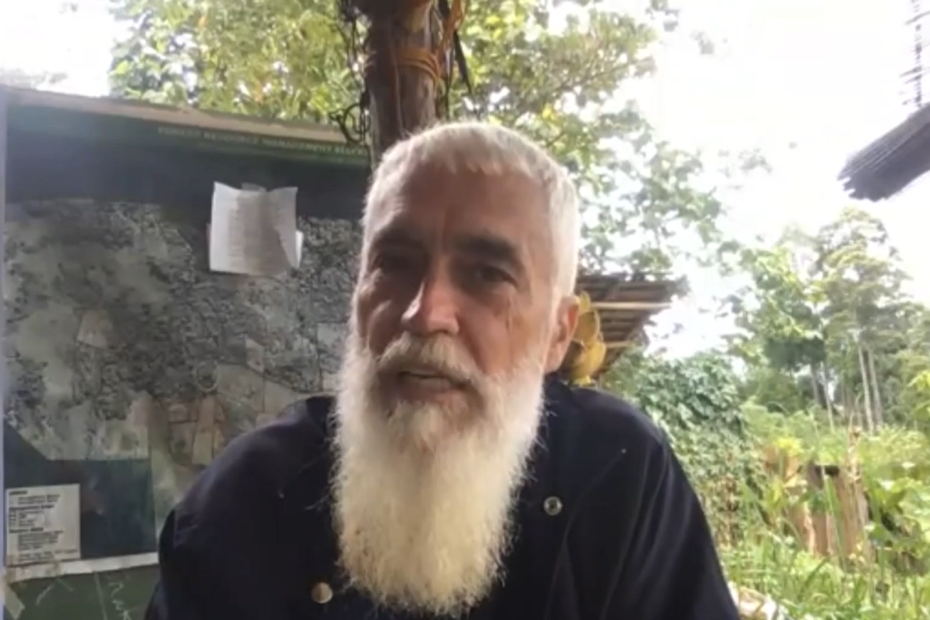Pedro Walpole SJ, Network Catalyst of the River Above Asia Oceania Ecclesial Network welcomes the participants of “Ecclesial Synodality in the Shared Mission of Oceania and Asia,” a gathering of voices from the Church, civil society organizations, and local communities towards the process of Ecclesial Synodality.
In his message, Pedro highlights the question: How can the Church be a source of greater accompaniment to marginalized people so their voices can be heard globally at this critical time?
I welcome you all, from across the world and all times of the day, to this gathering. And as I live with the Pulangiyēn People whose ancestors received this river and lands and all within them from the Creator, I wish to give thanks for their accompaniment and vision in humbly caring for life and sharing in this moment.
RAOEN, the River Above Asia Oceania Ecclesial Network, seeks to serve the dialogue of integral living so that broader collaboration is possible and the breadth and integrity of the territory is maintained, its ecology and its economy. RAOEN promotes a listening and active Church as local community voices participate in the universal: a listening and a paresha – that is, integrating freedom, truth and charity into a genuine dialogue.
The mission of RAOEN is to shine a light on the importance of the present and the future of humanity’s ways of living with nature and fellow human beings, especially those living in the forests and on the ocean, may they be called Ocean Nations, Aboriginals, Tribals, Indigenous Peoples or by other cultural identities. Pope Francis wanted us to see that: “You, the lowly, the exploited, the poor and underprivileged, can do, and are doing, a lot. I would even say that the future of humanity is in great measure in your own hands, through your ability to organize and carry out creative alternatives, through your daily efforts to ensure the three “L’s” – do you agree? – (labor, lodging, land) and through your proactive participation in the great processes of change on the national, regional and global levels. Don’t lose heart!” [*]
In March 2019, an Oceania Asia Working Group came together during the International Conference on Integral Ecology held as a Synodal Response from the Amazon and Other Essential Biomes/Territories for the Care of Our Common Home. Red Ecclesial Pan Amazónica (REPAM) shared their experiences in preparation for the Synod on the Amazon. They supported different events, especially Indigenous Peoples assemblies, gathering communities in different spaces with church, with women and youth as animators and facilitators, listening to all who shared their perspectives.
The Oceania and Asia group shared their experiences of what is happening in the region and what are the vital concerns in community. Cardinal Tagle, Cardinal Ribat and Cardinal Bo supported the efforts, and along with the long-term support of Cardinal Gracias, gave the group their blessing and supported this path towards RAOEN.
This region shares the common image in the “River Above” which is the Pacific Ocean – the life, the river feeding all rivers of Asia. The winds and the waters of the Pacific always move west to Asia, affecting all seasons and all lives. The geographical biomes of Oceania and Asia are of global importance and the diversities in this region are unique, specific, and integral. This rich diversity is now gravely threatened. Laudato Si’ and most especially Querida Amazonia opened the culture of dream and hopefulness of the youth to dare to see beyond the crises of the day. The inclusive processes of the Ecclesial Network Alliance also supports these territorial networks globally.
We want to listen today to his eminence Cardinal Mario Grech explain to us the emerging Synod on Synodality and the Assemblies of the different Bishops’ Federations that bring great hope to this journey for the kingdom. Understanding the centrality of the community process of participation is critical as the Church builds through the life of people. We are learning together; it is an opportunity to sow hope for those who participate.
This process is one of listening, reflecting and drawing from others for further clarity and emphasis. We are grateful to hear today from Sr. Mariana Tevurega Coordinator for the Women’s Ministry at Caritas Fiji; Sanjeeb Drong, General Secretary, Bangladesh Adivasi Forum, and Ursula Rakova, Executive Director, Tulele Peisa, Papua New Guinea.
As Church, we are challenged to listen from the ground up and build bridges in dialogue with all faiths to respond to the concerns of vulnerable communities, especially the indigenous. Across the region, this vulnerability must be reduced in the context of growing disasters and the need to build back better.
Much of the region is comprised of the “most vulnerable states” especially the Ocean Nations that face the brunt of climate disasters. These communities need to be heard on the global platforms as Pope Francis visits COP26 in Glasgow in November. As an aside, RAOEN is planning an event in COP26.
Communities are making a critical contribution to civil society today where faith organizations are increasingly valued for their integrity, rootedness in community and broader service. The calls to care for our common home are coming from diverse contexts in society, but from the same source of humble dignity in each person and the belongness to the land and seas.
How can the Church be a source of greater accompaniment to marginalized people so their voices can be heard globally at this critical time?
Our thanks to Cardinal Grech for his willingness to join us today and encourage us in the deeper reflection on our mission in Oceania and Asia and also, to Carinal Charles Bo and Archbishop Peter Loy Chong for their territorial engagement.
Thank you, madakēl salamat.



